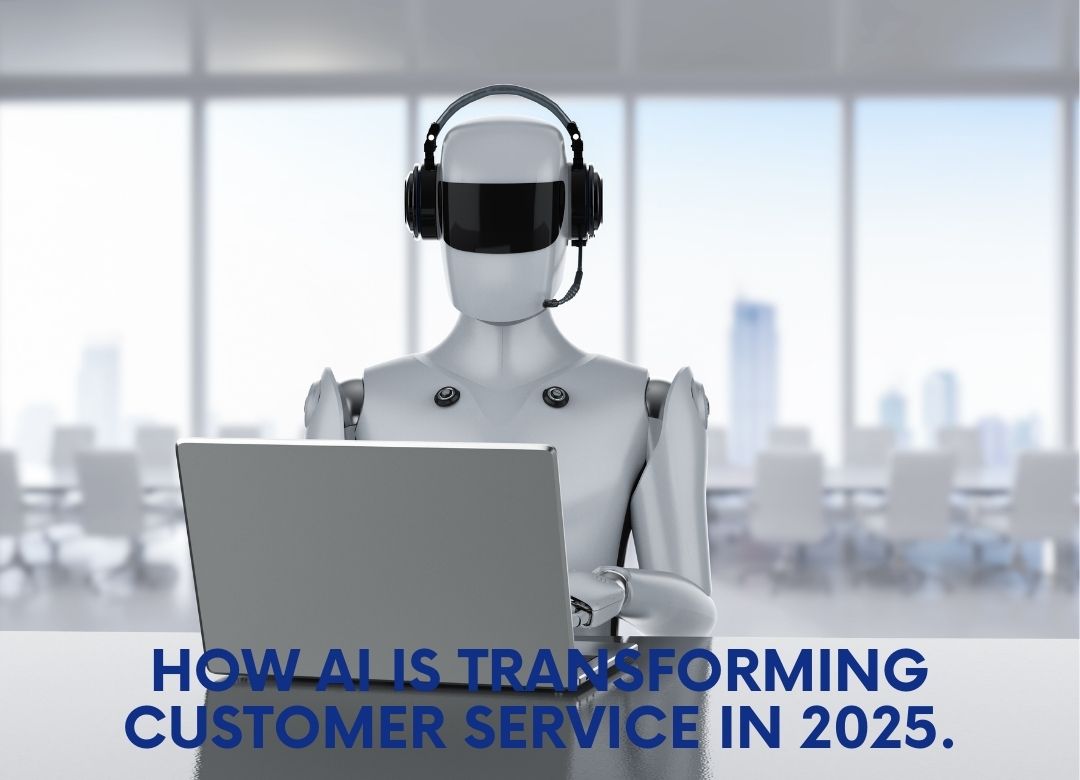Just imagine it is 2025 when a customer calls the support line of the company. Rather than being put on hold, an AI assistant picks up the phone instantly, identifies what they want and resolves the query within seconds – at times even before the customer has finished typing in their problem. What once felt like science fiction is now the daily reality of customer service.
AI has rapidly become the backbone of modern customer experiences, reshaping how businesses communicate, resolve issues, and build relationships with their audiences. From chatbots to predictive analytics, the future of customer service is no longer about reducing costs alone – it’s about creating personalized, frictionless journeys at scale.
The Evolution of AI in Customer Service
Two goals have always existed to serve customers that govern customer service – efficiency, and empathy. Human agents have great empathy, but traditional systems often struggled when it came to speed. This gap is filled by AI with:
- Chatbots and voice assistants provide access 24/7
- Personalized interactions with customer-specific recommendations
- Faster resolutions via automation of repetitive queries
AI maintains uniform and high-quality service despite the geographic differences serving different regions, cultures, or countries cost effectively – a major benefit for global businesses partnering with a BPO company.
Key Ways AI is Transforming Customer Service in 2025
1. Hyper-Personalized Experiences
AI goes beyond answering – it predicts needs. Companies offer tailored solutions to customers even before asking, leveraging on browsing patterns, purchase history and sentiment.
For instance, if AI monitoring usage patterns detects a spike in data, a telecom provider can proactively pitch a new data plan.
2. Predictive Customer Support
In 2025, systems powered by AI are anticipating problems rather than reacting to complaints. With predictive analytics, companies can identify issues like outages, billing mistakes, or shipment delays before they turn into a crisis.
Stat Check – 65% of all customer interactions will be non-human by 2025, largely based on AI developments, according to Gartner.
3. AI-Driven Contact Centers
AI copilot aid for human agents in modern contact centers. These systems can listen to ongoing conversations, offer possible replies, and even sense customer emotions on the fly.
| Feature | Traditional Contact Center | AI-Powered Contact Center 2025 |
|---|---|---|
| Average Handling Time | 6–8 minutes | 2–3 minutes |
| Customer Satisfaction Score | 70% | 90% |
| Agent Workload | High (manual) | Reduced (AI-assisted) |
4. Multilingual, Omnichannel Support
By the year 2025, no matter if customers text, call, email, or message through social apps, they should not have to explain the context to the support if they contact through different channels. With AI, language barriers and regional constraints are a thing of the past, thanks to real-time translations and consistent engagement across all channels.
5. Human + AI Collaboration
AI takes the repetitive and transactional conversations, while human agents take the complex, emotional, or high-value conversations. This leveled up the manner of service and employee satisfaction.
The Benefits at a Glance
| Benefit | Impact |
|---|---|
| 24/7 Availability | No downtime, instant support |
| Personalization | Higher customer loyalty |
| Cost Efficiency | Reduced operational costs |
| Faster Resolutions | Improved satisfaction scores |
| Predictive Insights | Fewer escalations & complaints |
Real-World Examples in 2025
- Retail: AI chatbots now handle over 70% of order inquiries.
- Banking: Virtual agents authenticate customers securely using voice biometrics.
- Healthcare: AI assistants schedule appointments and share tailored wellness advice.
Conclusion
2025 is the year customer service took a leap away: AI is far beyond supporting tools nowadays, it is the heart of customer satisfaction. Businesses who utilize AI save costs, while enabling the creation of deeper and more empathetic connections with customers.
The future is built on businesses mixing the efficiency of AI with the empathy of humans: where customers know they are being heard, as well as valued. Those who adjust today will be the power brokers of the next era in customer service.

Sandeep Kumar is the Founder & CEO of Aitude, a leading AI tools, research, and tutorial platform dedicated to empowering learners, researchers, and innovators. Under his leadership, Aitude has become a go-to resource for those seeking the latest in artificial intelligence, machine learning, computer vision, and development strategies.


